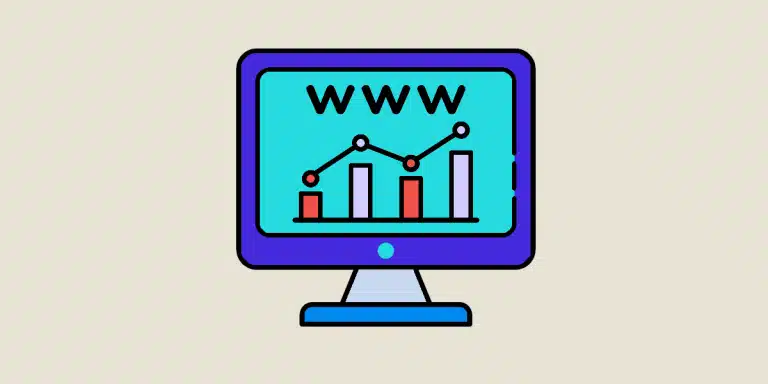The website is the main artery of any business: its quality must be beyond reproach to ensure your company's growth. To certify this, there's nothing better than web analysis. This system enables us to understand user behaviour on a website. Web analytics helps to identify areas for improvement to enhance the user experience, optimise search engine optimisation and increase conversions on your site. But what exactly is web analytics? Why is it so important and what are its benefits? Find out in this article.
Definition of Web Analytics
Web analytics is a method of measuring, collecting and analysing data about user behaviour on a website. This type of analysis can provide information about:
- how users navigate a site;
- the most frequently visited pages
- the bounce rate;
- the number of visitors and new visitors;
- average session length;
- the conversion rate;
- etc.
Web analytics involves understanding how users use a website and identifying areas for improvement to enhance the user experience. This data collection can then be presented in different dashboards, each representing the sources of traffic to the website or mobile application.
Why is web analytics crucial for businesses?
If your website isn’t working properly, visitors will quickly turn to your competitors. Web analytics helps companies understand how their website is being used, when visitors are leaving and where they are having problems. Companies can then use this information to improve their web pages and user experience, adapt their digital marketing strategy and increase their bottom line.
User experience is a crucial aspect of success on the Internet. A website that is easy to use, pleasant to navigate and able to respond to users’ needs is essential for building visitor loyalty. Here are some of the benefits of using web analytics to improve user experience.
Monitoring visitor behaviour
Web analytics is used to track the behaviour of visitors to a website. It provides data on the navigation path, the pages visited most often, the average length of sessions and the bounce rate, among other things. This information enables companies to gain a better understanding of visitor behaviour and which pages are the most popular.
It also enables companies to better target their content and provide a more personalised user experience that is better adapted to visitors’ needs. This tracking can be carried out using tools such as Google Analytics, Google Tag Manager or Hotjar.
Personalising content for users
Thanks to relevant analyses on Google Analytics and Google Search Console, you can understand the best-performing pages on your website and the keywords on which your pages are positioned. You can then adapt your strategy according to the performance on each keyword and direct your creation of articles according to the conversion rate.
Conversion rate analysis and optimisation
Finally, web analysis helps you to see the conversion rate of your web pages. It can provide information about which pages have the highest conversion rate, or which pages are not converting enough visitors into customers. By using this information to optimise your content, your offer or your buying process, you can increase the number of conversions on your website.
Web Analytics - Conclusion
In short, web analytics enables us to understand how users interact with a website, identify areas for improvement to enhance the user experience, optimise search engine optimisation and increase conversions. If you’d like to learn about web analytics, choose a course in data marketing.










